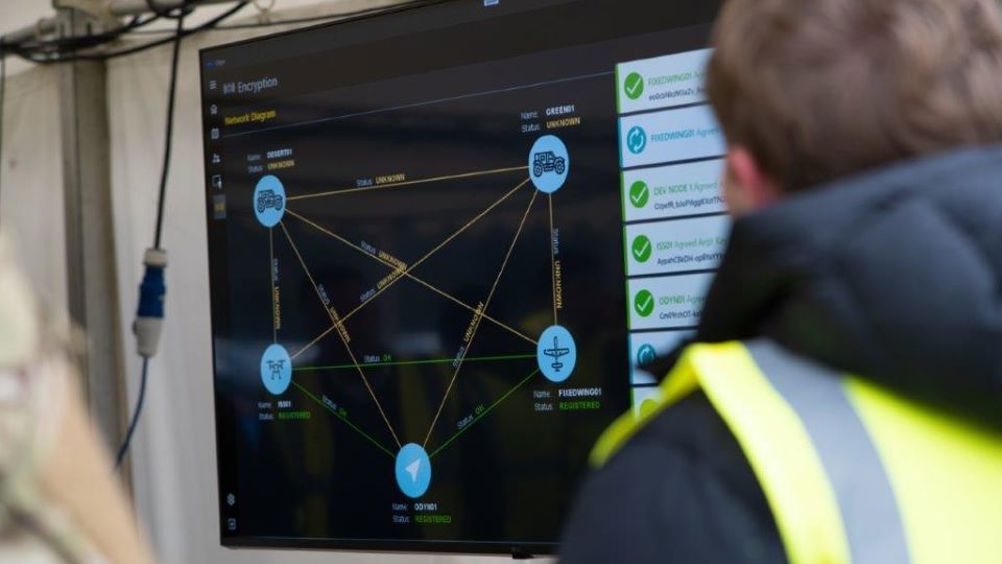SwarmCore controls single or fleets of battlefield vehicles
Babcock International Group (Babcock) has developed SwarmCore, a technology that can control single or entire fleets of vehicles on a battlefield.

The advanced software system made up of multiple networks has been demonstrated by Babcock at the UK Ministry of Defence’s BattleLab site in Dorset.
The project was created in collaboration with Arqit, a quantum-safe encryption specialist, and supported by Innovate UK.
According to Babcock, SwarmCore can be used to control single or entire fleets of vehicles such as drones. Furthermore, it can be operated fully autonomously or by remote human control at a safe distance from the battlefield.
The defence giant added that a key benefit of SwarmCore and its integration with Arqit’s Symmetric Key Agreement Platform is its ability to receive and transmit data in a safe and secure way in a decentralised manner.
Consequently, if a single vehicle as part of a fleet was hacked or attacked then the rest of the fleet could continue its mission with no single asset ever being a point of failure.
Register now to continue reading
Thanks for visiting The Engineer. You’ve now reached your monthly limit of news stories. Register for free to unlock unlimited access to all of our news coverage, as well as premium content including opinion, in-depth features and special reports.
Benefits of registering
-
In-depth insights and coverage of key emerging trends
-
Unrestricted access to special reports throughout the year
-
Daily technology news delivered straight to your inbox










Water Sector Talent Exodus Could Cripple The Sector
Maybe if things are essential for the running of a country and we want to pay a fair price we should be running these utilities on a not for profit...